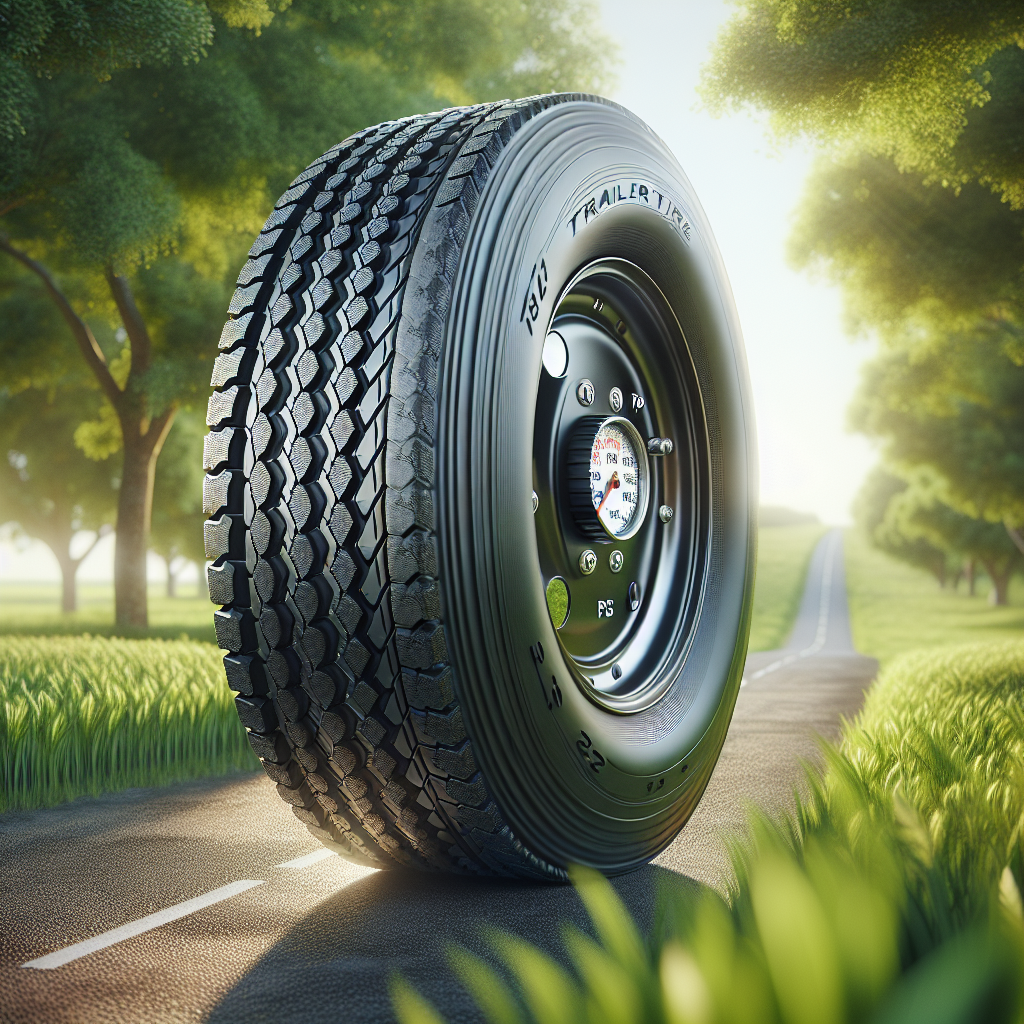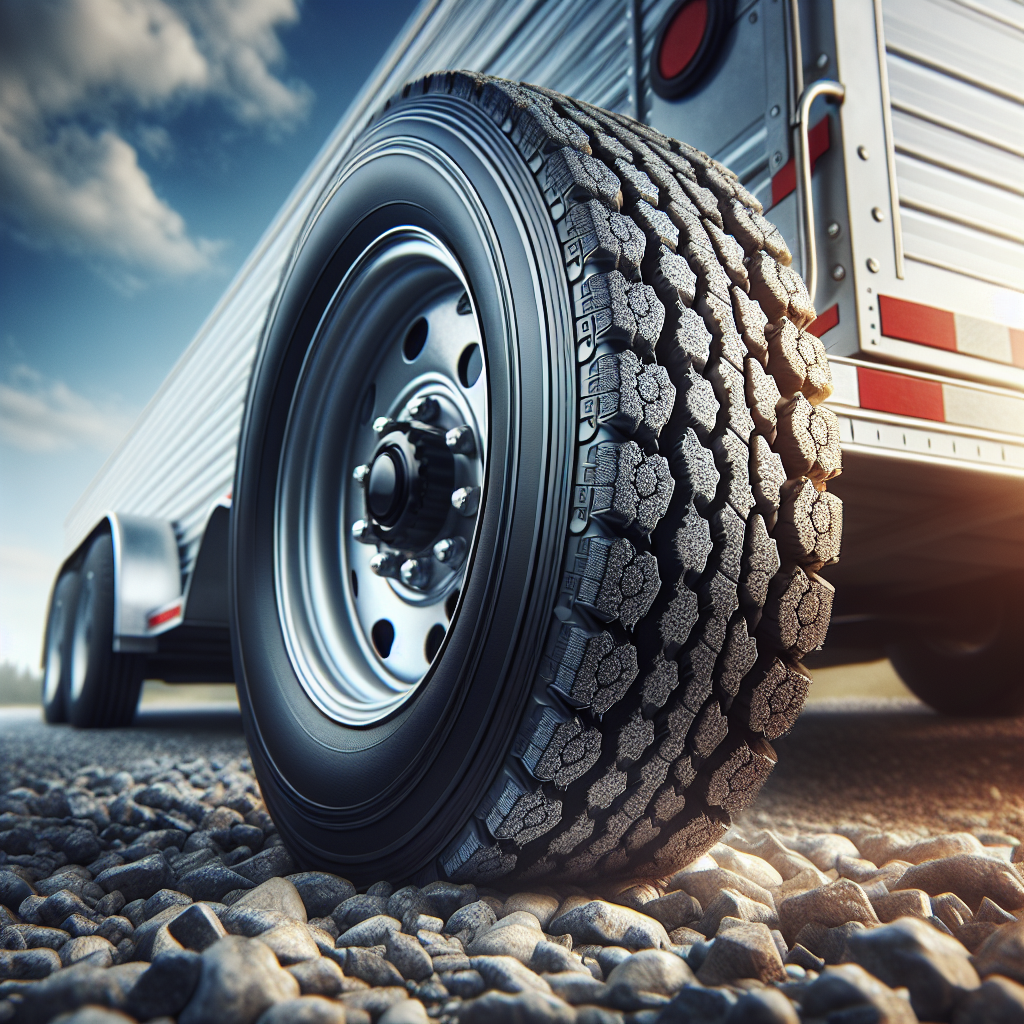

Maintaining the right tire pressure is crucial for the performance and safety of your trailer. Understanding what PSI should my trailer tires be at can make a significant difference in how your trailer handles on the road. Proper tire pressure ensures that your tires wear evenly, enhances fuel efficiency, and minimizes the risk of blowouts, which can lead to catastrophic failures.
When tires are inflated to the manufacturer's recommended PSI, they can support the load effectively. Under-inflated tires can cause excessive heat buildup, leading to tire degradation and potential failure. Conversely, over-inflated tires may lead to reduced traction and an uncomfortable ride, making it harder to control your trailer.
To determine the optimal tire pressure for your specific trailer, consult the vehicle’s manual or the tire placard typically located on the trailer’s frame. It’s also advisable to check tire pressure regularly, especially before long trips or after significant changes in temperature, as pressure can fluctuate with environmental conditions.
Incorporating a trailer monitoring system can provide real-time data on tire pressure and axle temperature, helping you stay on top of maintenance and enhancing safety. Tow with peace of mind, knowing that trailerwatchdog is standing guard. Visit trailerwatchdog.com to learn more about transforming your trailer into a smart trailer.
Recommended PSI Levels for Different Trailers

When it comes to trailer tire pressure, there is no one-size-fits-all answer. Different types of trailers require varying PSI levels based on their design, load capacity, and intended use. Understanding these differences is essential to ensuring optimal performance and safety.
Here are some general recommendations for PSI levels based on trailer types:
- Utility Trailers: Typically, these trailers range from 30 to 50 PSI. It’s important to check the specific tire recommendations as they can vary widely depending on the size and load.
- Travel Trailers: For travel trailers, the recommended PSI usually falls between 60 to 80 PSI. This higher range helps support the additional weight of living accommodations and supplies.
- Boat Trailers: These trailers often recommend a PSI of 30 to 50 PSI, similar to utility trailers, but always refer to the manufacturer's guidelines due to varying weights.
- Car Haulers: For trailers designed to transport vehicles, it’s advisable to maintain a PSI of 50 to 75 PSI, depending on the weight of the vehicles being towed.
It’s essential to note that maintaining the correct PSI not only enhances safety but also improves fuel efficiency and tire longevity. Regularly checking your trailer tires and adjusting the pressure as needed can help prevent tire-related issues on the road.
How to Measure Trailer Tire PSI Accurately
Accurate measurement of trailer tire PSI is crucial for ensuring safety and optimal performance while towing. Here’s a step-by-step guide on how to measure your trailer’s tire pressure effectively:
Protect your trailer
- Gather the Right Tools: You will need a reliable tire pressure gauge. There are various types available, including digital, dial, and pen-style gauges. Choose one that suits your preference and is easy to read.
- Check Tire Temperature: It’s best to measure tire pressure when the tires are cold, preferably before driving. Warm tires can give inflated pressure readings, leading to inaccurate adjustments.
- Remove Valve Stem Caps: Carefully unscrew the valve stem cap from the tire you wish to measure. Keep the cap in a safe place to avoid losing it.
- Press the Gauge onto the Valve Stem: Firmly press the tire pressure gauge onto the valve stem. Ensure a good seal to prevent air from escaping. The gauge will provide a reading almost instantly.
- Read and Record the PSI: Check the gauge to see the current PSI reading. Compare this with the manufacturer’s recommended PSI for your trailer type. If the pressure is low, you will need to inflate the tires accordingly.
- Replace Valve Stem Caps: After measuring, replace the valve stem cap to protect the valve from dirt and moisture, which can affect tire performance.
Regularly measuring your trailer tire PSI, especially before long trips, can significantly reduce the risk of tire blowouts and other related issues on the road. By keeping your tires properly inflated, you enhance your safety and ensure a smoother towing experience.
Effects of Improper Trailer Tire PSI

Maintaining the correct tire pressure in your trailer is not just about convenience; it is vital for safety and performance. Improper trailer tire PSI can lead to a variety of detrimental effects:
- Increased Tire Wear: Over-inflated tires can cause excessive wear in the center of the tread, while under-inflated tires wear out on the edges. This uneven wear significantly reduces tire lifespan, leading to costly replacements.
- Poor Handling: Incorrect tire pressure can affect your trailer's handling characteristics. Over-inflated tires may result in a harsher ride and reduced traction, while under-inflated tires can cause sloppiness in steering and may increase the risk of swaying while towing.
- Increased Risk of Blowouts: Tires that are under-inflated generate more heat due to increased friction. This heat buildup can lead to tire blowouts, especially during long drives or under heavy loads, posing a serious safety hazard.
- Fuel Inefficiency: Improper tire pressure can lead to higher rolling resistance, causing your vehicle to work harder. This increased effort can lead to reduced fuel efficiency, ultimately costing you more money at the pump.
- Impact on Braking: Tires with improper PSI can affect braking performance. Under-inflated tires may lead to longer stopping distances, while over-inflated tires can reduce the contact area with the road, compromising grip.
Overall, maintaining the correct PSI for your trailer tires is essential for ensuring safety, efficiency, and optimal performance. Regular checks and adjustments can help mitigate these risks and keep your trailer performing at its best.
Tips for Maintaining Optimal Trailer Tire Pressure

Keeping your trailer tires at the optimal pressure is crucial for safety and performance. Here are some effective tips to help you maintain the ideal PSI for your trailer:
- Regular Inspections: Check your tire pressure at least once a month and before long trips. Use a reliable tire pressure gauge to ensure accuracy, as temperatures and load can affect readings.
- Know the Recommended PSI: Always refer to the manufacturer’s specifications for the correct PSI for your trailer tires. This information is usually found on a sticker located on the trailer's frame or in the owner’s manual.
- Check When Cold: Tire pressure should be measured when the tires are cold, as heat from driving can cause the pressure to rise. Wait at least three hours after driving before checking, or measure before heading out in the morning.
- Monitor Load Conditions: If you frequently carry varying loads, adjust your tire pressure accordingly. Heavier loads may require a higher PSI to maintain stability and performance.
- Inspect for Damage: Regularly examine your tires for signs of wear, cracks, or bulges. Damaged tires can lead to improper pressure retention and should be replaced immediately.
- Invest in a Tire Monitoring System: Consider using a tire pressure monitoring system (TPMS) that provides real-time alerts for any changes in tire pressure. This technology can give you peace of mind while towing.
By following these tips, you can effectively maintain optimal tire pressure, enhancing safety and prolonging the life of your trailer tires. Regular maintenance is key to ensuring that your trailer remains in top condition.
When to Seek Professional Trailer Tire Assistance

While many trailer tire issues can be managed with routine maintenance, there are times when seeking professional assistance becomes essential. Recognizing when to consult a tire specialist can save you from potential accidents and costly repairs. Here are some indicators that it's time to seek professional help:
- Frequent Pressure Loss: If you notice that your tire pressure drops consistently, even after regular maintenance, it may indicate a leak or damage that needs professional inspection.
- Uneven Wear Patterns: Tires that show signs of uneven wear can affect towing stability and safety. A professional can diagnose alignment issues or suspension problems that may be contributing to this wear.
- Visible Damage: If you spot bulges, cracks, or punctures on your tires, don't attempt to fix them yourself. These issues can compromise the integrity of your tires and require expert repair or replacement.
- Vibration or Noise: Unusual vibrations or noises while towing can signal serious problems with your tires or trailer. A professional can help identify the source and recommend necessary repairs.
- Annual Inspections: Consider an annual inspection by a tire professional, especially before long trips. They can provide a comprehensive check-up to ensure your tires are safe and ready for the road.
When in doubt, don’t hesitate to reach out to a tire specialist for an evaluation. Remember, “Tow with peace of mind, knowing that TrailerWatchdog is standing guard.” Our monitoring system can help you stay informed about your trailer's tire health, allowing you to focus on the journey ahead.




